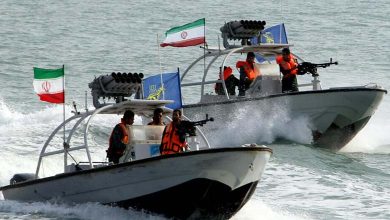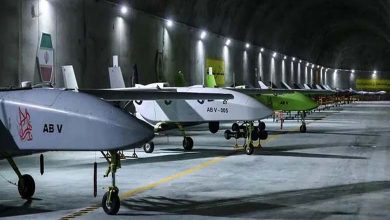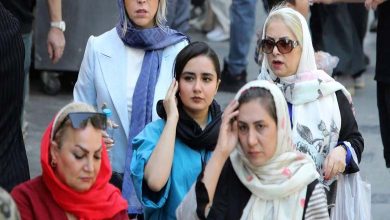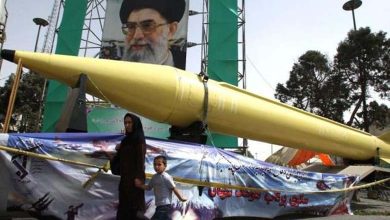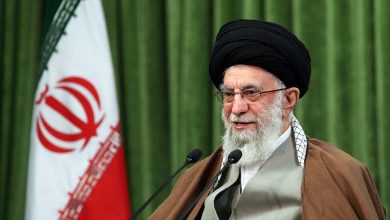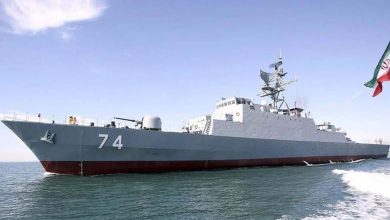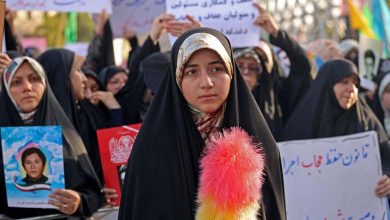Why are Iran’s militias escalating their threats against the Kurds in Iraq?
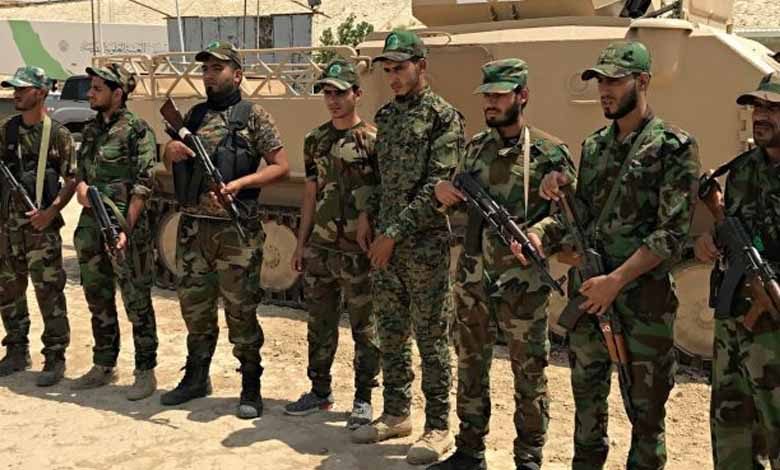
Iraq Pro-Iranian militias in Iraq are escalating their threats against the Kurdistan region, which is accused by the Iranian media and by Shiite militias linked to the Revolutionary Guard of opening its territories to American and Israeli intelligence activity targeting Iranian interests, leaving the region vulnerable to further pressure and threats from these terrorist militias.
A recent analysis by Voice of America warned of a new danger facing Kurds who fought with IS militants and played a key role in driving them out of their territory, the threat of Iranian-backed militias.
The US Broadcasting Corporation’s website reports that the region has witnessed several rocket and drone attacks in recent weeks, targeting bases that are home to US-led international coalition forces.
“Iranian militias have recently stepped up their targeting of the Kurdistan region, most recently the attack on Erbil airport, which is located near American military personnel, on 14 April.”
The attack came nearly two months after a similar strike on a military compound at the airport where coalition forces were stationed, killed a contractor working for the coalition at the airport and wounded 5 other coalition personnel.
Incitement of the Kurds
The authorities in the Kurdistan Region of Iraq have already expressed their fear of a new wave of escalation by Shiite militias affiliated to Iran, after the region’s name was dragged into the escalating Iranian-Israeli conflict
Terrorist militias such as the Popular Mobilization Forces, Asaib Ahl al-Haq, and other pro-Iranian militias have been waging a broad campaign of incitement against the Kurds and accusing them of intelligence cooperation with Israel against Iran, in an attempt to pressure the region to expel U.S. forces there.
Qais Al-Khazali, the leader of Asaib Ahl al-Haq (one of the most closely linked Iraqi Shiite militias in the Iranian Revolutionary Guard), stated that the Israeli Mossad had set up a spy station in the Sulaymaniyah province of the Kurdistan region.
Akram Al-Kaabi, the leader of the Harakat Al-Nujaba militia, has previously said that “the Israelis enter Iraq with fake American passports.” He confirmed that his movement “knows the whereabouts of the Israelis in the American embassy and Ain Al-Asad base,” as he claimed, “the activity of an Israeli woman with the rank of general who enters Iraq and runs a camp in Erbil,” the center of the Kurdistan region of Iraq.
These statements have been supported by Iranian state media; Iranian media, including the official Al-Alam channel, citing unofficial sources, said that an unidentified group killed one person and injured several others by targeting an Israeli Mossad information center in Iraqi Kurdistan.
“These reports are completely baseless,” said Gutiar Adel, the Kurdish government spokesman. “We believe that the purpose of publishing such reports is to target a clear conspiracy against the region and its political process.”
“This is not the first time that the region has been accused of having a special Israeli intelligence center on its territory,” Adel said, according to the London-based Al-Arab newspaper.
The Kurdistan region affirms its commitment to the Iraqi federal system, which does not have diplomatic relations with Israel.
Observers do not rule out that the purpose of publishing the news of the targeting of the Mossad center in Iraqi Kurdistan is to imply that Iran has actually carried out its promise and responded to the Natanz attack through its affiliated militias, which are actually using it to harass American forces present on Iraqi territory.
An attempt to pressure the region
“As Washington moves to scale back the U.S. military presence in Iraq, Iran’s allies in the country have shown concern that Iraqi Kurdistan’s territory could become an alternative home for forces that the United States might withdraw from other Iraqi areas.”
Against this backdrop, these militias have made threats to the Territory embodied by their recent attacks.
The relationship of the political leadership of the Kurdistan Region of Iraq with the Iraqi Shiite militias linked to Iran is experiencing more tension due to pressures on the region by those militias that influence Iraqi politics through their relationship with political parties and through their representatives in Parliament.
Those pressures are almost turned into a process of suffocation of the Territory and a failure of its authorities when it comes to trying to prevent the Territory from obtaining its share of the federal budget, which for it represents a lifeline, especially during the current period and the difficulties and crises that characterize it.
The pressure campaign by Iraqi Shia militias known for their close ties to Iran is not divorced from the solid relationship that the Iraqi Kurdish leadership has with Washington; The militias, and Iran behind them, fear that the Kurdish leadership, together with Iraqi Prime Minister Mustafa al-Kazimi, will form a political camp close to the United States and opposed to the pro-Tehran camp of Shia militias and parties.
Is Washington’s Position Enough?
And last week, US Secretary of State Anthony Blinken called the head of the regional government, Massoud Barzani, to assure him of “Washington’s commitment to the stability of Iraq and the Kurdistan region.” In the call, the two sides discussed “the continuing attacks on Iraqi, American and coalition forces” and confirmed that these attacks represent a flagrant violation of Iraqi sovereignty.
Despite showing support for the region from the United States and other Western governments, “the people of the region are still concerned about the Iranian-affiliated Popular Mobilization Forces,” according to the US Radio report.
“It’s no secret, of course, that the Kurdistan region will face the threat of unaccountable militias armed with weapons,” says prominent Kurdish political activist Ruwaida Mustafa.
What the region needs is “political will from the two main parties to think about the next journey, and unify the peshmerga forces beyond their political parties,” she said.
The Kurdistan region is ruled by the Kurdistan Democratic Party and the Patriotic Union of Kurdistan. Although they are part of a unified government, they have separate peshmerga forces.
An earlier report by al-Hurra highlighted the region’s political divide and its weak ability to counter external threats, including those from pro-Tehran militias.




